Policy Meets Pathways: A State Policy Agenda for Transformational Change
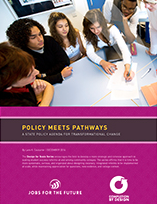
This report, released by Jobs for the Future, says that a decade of interventions and improvements have fallen short because states and campuses have not taken large enough steps to address their biggest challenge—helping the 12.8 million students enrolled in community colleges earn postsecondary degrees and credentials to find good jobs. The report argues that campuses and… Read More ›
Keeping Pace with K-12 Digital Learning: An Annual Review of Policy and Practice (2015)

This report documents the state of digital learning across the country each year. The 2015 report follows the shift in the larger landscape towards more school control of online learning with more emphasis on the users and developers of digital learning and more school program examples throughout. First the authors provide a broad report on… Read More ›
What You Need to Know When Developing Micro-Credentials
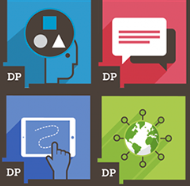
This article defines micro-credentials and what the author learned from implementing them. Educators didn’t necessarily know what to expect as they began the journey toward micro-credentials (sometimes called badges), but they were eager to explore the possibility of changing professional learning from seat-time to competency-base to encourage changes in practice. In an effort to help teachers apply… Read More ›
2016 GFE Annual Conference

The 2016 Grantmakers for Education Conference—Equity in Education: Conversations We’re Not Having—will be a forum for “undiscussable” topics, an opportunity to bring them out of the shadows. This year’s conference will be held in the Mountain West United States—Denver, Colorado—a region that has been lauded nationally for its progressive K-12 reform initiatives. Despite many successful… Read More ›
EWA National Seminar

The 69th National Seminar for the Education Writers Association, to be held May 1–3, will explore issues related to “The Quest for Quality and Equity” in education and its coverage, as well as other salient topics in the field. More on the conference theme. Three days of dynamic programming and networking opportunities await the estimated 600… Read More ›
Students Help Design Measures of Social-Emotional Skills
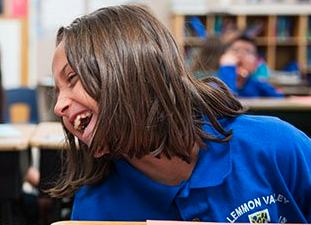
This article explores how Washoe County District, a district in Reno, Nevada, put social-emotional learning in the forefront of their education system. A growing body of research connects skills like responsible decision making, empathy, and responding to emotions with both greater engagement in the classroom and improved academic outcomes. Washoe County District, launched a social-emotional learning… Read More ›
Teachers Know Best

This research project’s goal is to bring the perspectives of teachers to developers who are creating digital tools for the classroom. Moving from anecdotes of what digital instructional tools teachers want and need, to actual, solid data, will help us to better understand how teachers use digital technology in the classroom, and how these tools… Read More ›
Support From The Start: A 50-State Review of Policies on New Educator Induction and Mentoring
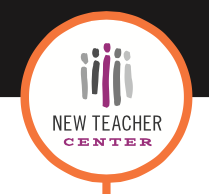
This report, published by the New Teacher Center, details state-by-state policy around support for new teachers. It examines state induction and mentoring program requirements for new teachers and principals, and their mentors. It also looks at state policies on teaching and learning conditions, now a recognized measure of school improvement under the Every Student Succeeds… Read More ›
Ambitious Instruction: Towards Deeper Learning on a Larger Scale
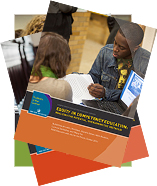
Educational reforms come and go from one decade to the next, but the everyday routines of classroom instruction hardly ever seem to change. Why have the culture and practice of teaching been so slow to evolve? What does the most ambitious, deeper teaching entail? And what it will take to scale up such instruction in… Read More ›
Online Learning in Public Schools: Data from States and Districts

This blog post looks at the data on public schools from several states and districts. Source Organization: Keeping Pace with K-12 Digital Learning Visit the Resource
When Restorative Justice in Schools Works
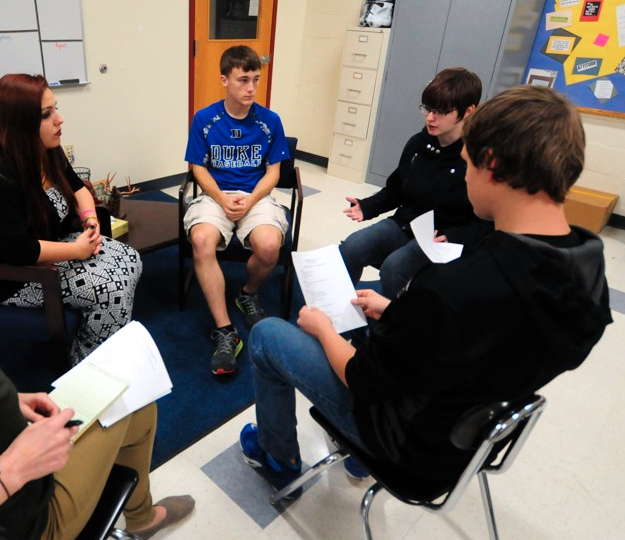
This article outlines an alternative discipline program- restorative justice which is gaining popularity in public schools from Maine to Oregon. Early adopters of the practice report dramatic declines in school-discipline problems, as well as improved climates on campuses and even gains in student achievement. In traditional school-discipline programs, students face an escalating scale of punishments for… Read More ›
Teaching for Deeper Learning for All Students
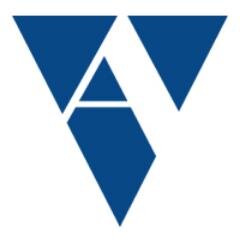
The Alliance for Excellent Education (the Alliance) and the National Commission on Teaching and America’s Future (NCTAF) will be hosting their third webinar in a series designed to explore the conditions needed to support great teaching for deeper learning. The promising practices, recommendations, and lessons learned will inform a collective effort, led by NCTAF, around… Read More ›